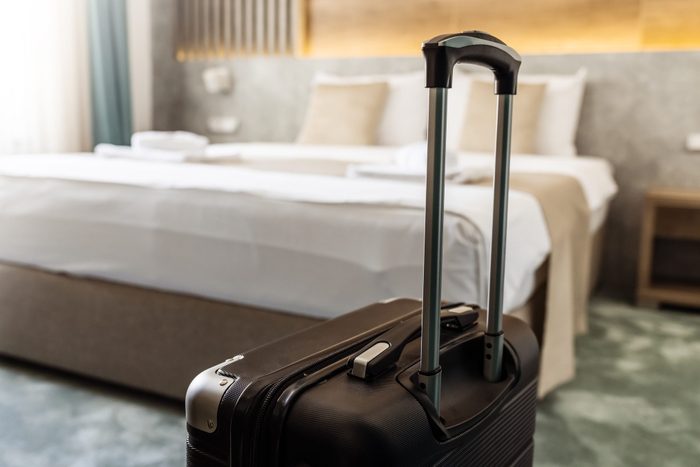
The future of hotels
Travel, not surprisingly, was among the sectors hit the hardest by COVID-19. “Hotels have faced enormous challenges over the past two years, and we are still a long way from full recovery,” says Chip Rogers, president and CEO of the American Hotel and Lodging Association.
The result? Hotels have made changes, both big and small, that affect everything from where you check in to how often your room is cleaned and how much you should tip housekeeping. That doesn’t mean you won’t like these new hotel procedures, though. “One of the biggest hotel industry trends is individualization and digitization of the customer experience,” says Rogers. In fact, some trends that were put in place or accelerated during the pandemic—like contactless check-in and grab-and-go dining options—have now become preferred customer choices.
Now that things are getting back to normal, more people are choosing hotels over Airbnbs for their vacation stays. Before you book though, be sure you know what you’re in for—and we’re not just talking about the things you need to look for in a hotel room. Browse the list below to find out what you can expect to no longer see at hotels in a world changed by the pandemic. The, consider making a change of your own: Give exhausted hospitality workers a break by avoiding these questions when talking to hotel staff.
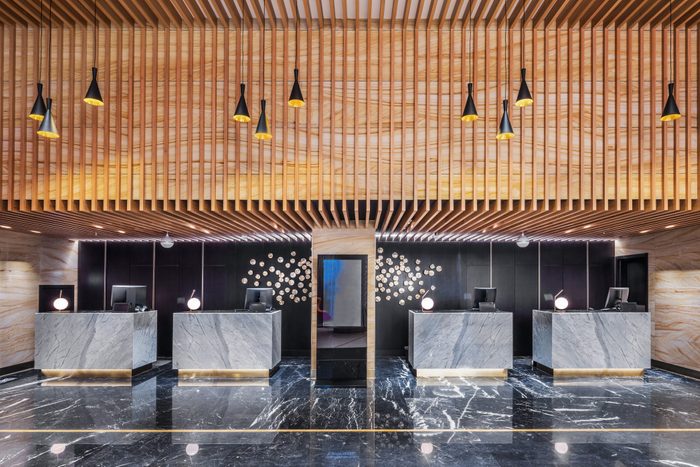
Front desk check-ins
Many hotels began offering guests mobile check-ins via smartphone during the pandemic, and that service has stuck around. You’ll find it at more than 3,200 Marriott locations around the world as well as at select IHG and Hyatt properties. The convenience of mobile check-in means it’s probably one of the everyday habits that will have changed forever thanks to COVID-19. That said, guests who prefer to check-in personally will still be able to do so at the front desk.
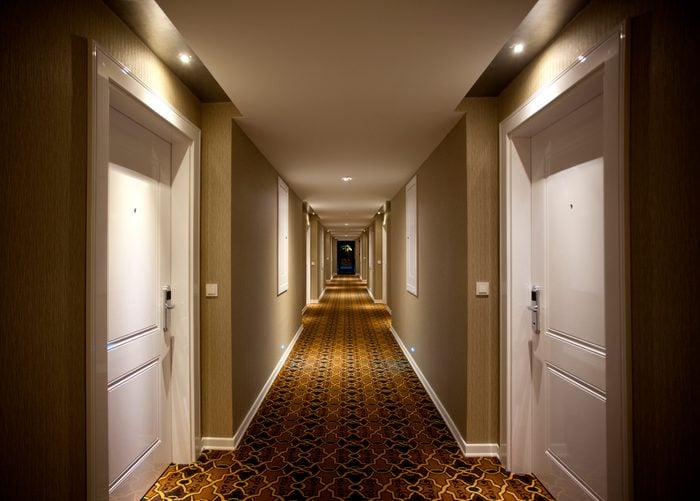
Key cards
Say goodbye to the plastic cards that are constantly lost or deactivated. Your new room key is a piece of tech you already own: your phone. These “smart keys” are already in place at many smart hotels, and you’ll find them at some Disney, Marriott, Hilton, IHG, and Hyatt properties via their respective hotel apps. In many cases, the apps are fairly comprehensive. With Marriott’s Bonvoy app, for example, you can, “check-in, check out, unlock the door, order room service, and more,” says Elynsey Price, a spokesperson for Marriott International. In essence, guests get “a contactless travel experience.”
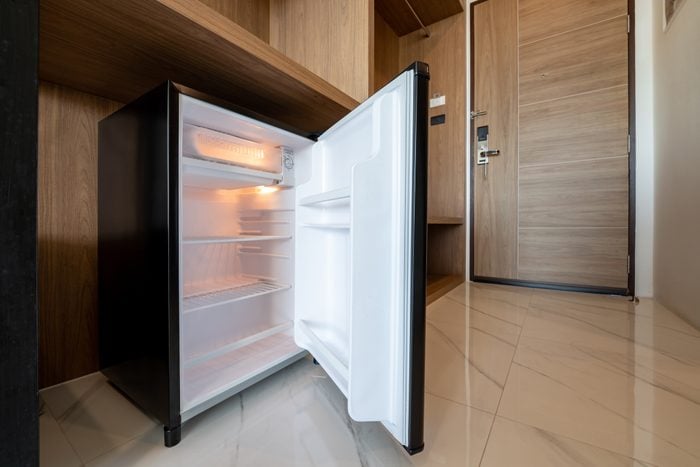
Stocked minibars
Even before COVID-19 upended the hospitality industry, hotels were getting rid of their minibars. Not only were there profitability concerns, says Rob DelliBovi, founder and CEO of RDB Hospitality, but there were also a lot of guest disputes. (Think: “I didn’t eat those M&Ms!”) “The pandemic has added an entirely new layer to this movement, as items that are not cleaned between guest stays are terrifying to virus-conscious travelers,” says DelliBovi. On your next hotel stay, you might notice that this amenity has vanished from your hotel room; indeed, many properties are removing their minibars completely or limiting them to items that are easier to clean or replace.
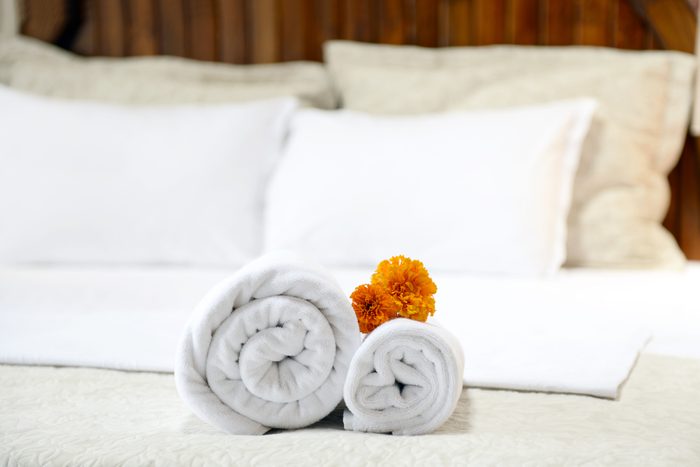
Automatic housekeeping
The pandemic certainly emphasized the importance of regular cleaning. But it also made many wary of letting strangers into their living space. While some hotels have returned to their routine of daily housekeeping, others, including the cleanest hotels, are waiting for guests to request daily service before knocking on their doors. “At some hotels, guests may need to opt in to room cleaning if they want a room attendant cleaning each day during their stay,” says Jennifer Barnwell, president of Curator Hotel and Resort Collection. Of course, housekeeping is one of the perks of staying at a hotel, so you can still expect it to be offered, even if it’s not automatic.
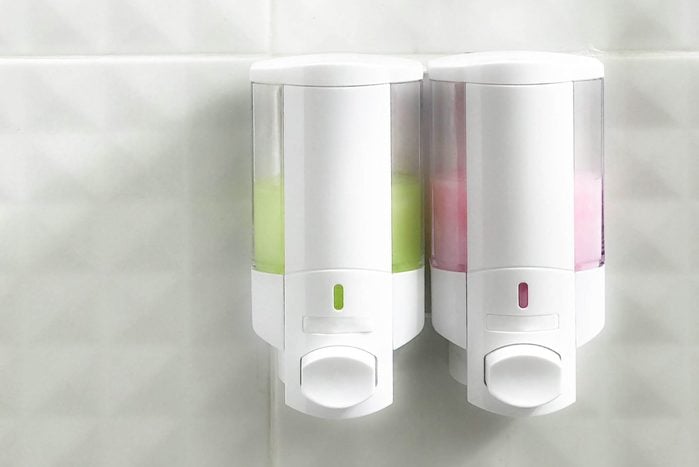
Mini toiletries
A few years ago, hotels began phasing out mini toiletries, turning instead to refillable bath products in an effort to reduce single-use plastic waste. But COVID-19 concerns brought your favorite things to take from hotel rooms (those tiny bottles of shampoo, conditioner, and lotion) back into the bathroom. So it may come as a surprise that the mini bottles are once again falling out of favor. Phasing out minis while offering refillable, bulk-size dispensers “fills a growing demand from travelers looking to travel more consciously,” says Jane Mackie, senior vice president of global marketing for IHG Hotels and Resorts. So don’t expect to see mini toiletries as much in the future.
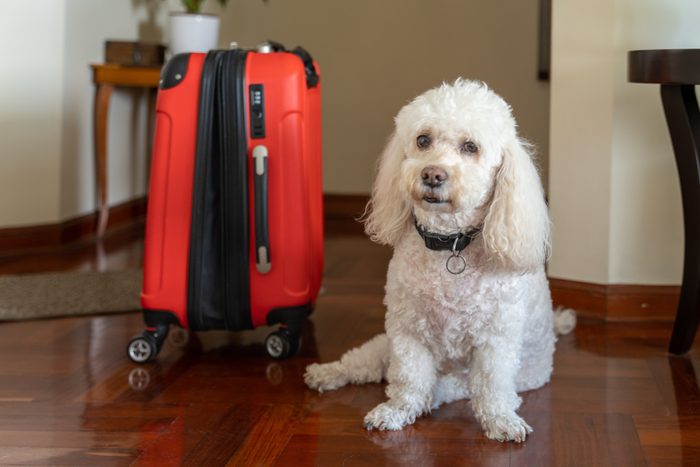
No-pet policies
Say so long to policies that restrict pets. “Following a record amount of families adopting a pet last year, hotels are now seeing more and more furry family members checking in,” says Adriaan Radder of Sonesta Resort Hilton Head Island, a dog-friendly hotel. “We’ve also seen local restaurants and bars start offering ‘yappy hour’ menus, and becoming more open to their untraditional customers. An added plus: Travelers will no longer have to worry about doggy daycare—we have travelers’ furry friends covered.”
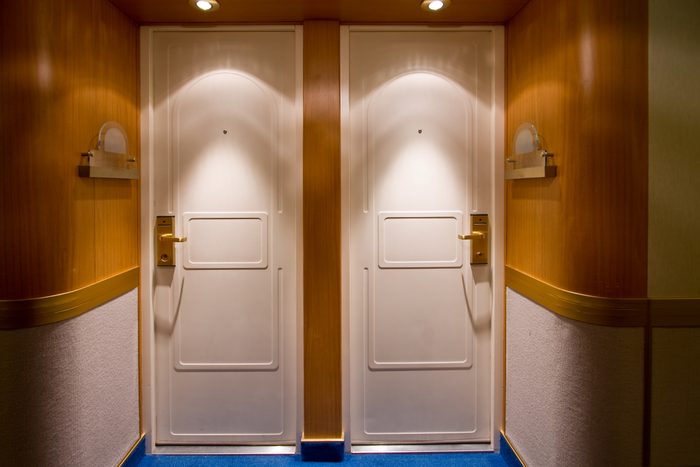
Printed notices placed under the door
The era of printed papers slipping beneath your hotel room door is coming to an end. “Whether it was a delight or not—depending on what you were receiving—this was certainly a waste of labor and paper. It does not align with sustainable practices,” says Barnwell. Instead of slipping notices (or bills) under the door, many hotels will send details about your stay via email. For frequent travelers, the change amounts to a good customer service move. Nobody enjoys waking up to a bill.
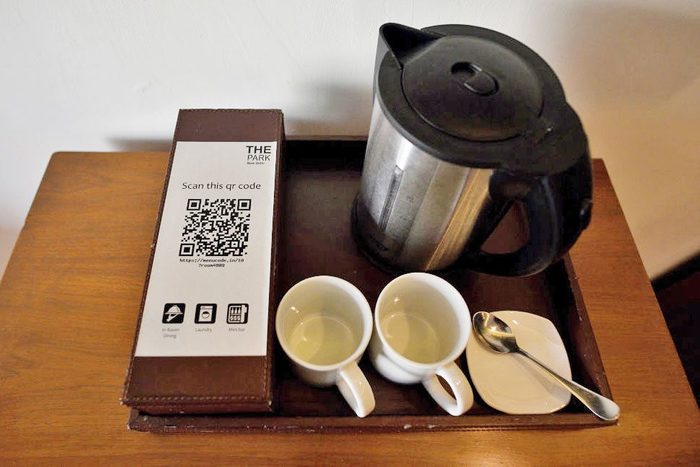
Printed room service menus and hotel information
These days, you won’t see much paper inside your hotel room at all. Most printed materials—menus, hotel information, and the like—have been replaced with QR codes. It’s a pandemic-prompted change that helps keep things contactless and clean. Considering the convenience and reduction in waste, this COVID-19-related change may stick around for good, says Jason Sitte, general manager of the Loews Minneapolis Hotel. Ready to book a stay and book it out of town? Find out the best hotel in your state.
Sources:
- Chip Rogers, president and CEO of the American Hotel and Lodging Association
- Elynsey Price, media relations manager for Marriott International
- Rob DelliBovi, founder and CEO of RDB Hospitality
- Jennifer Barnwell, president of Curator Hotel and Resort Collection
- Jane Mackie, senior vice president of global marketing for luxury and upscale brands at IHG Hotels and Resorts
- Adriaan Radder, general manager at Sonesta Resort Hilton Head Island
- Jason Sitte, general manager of Loews Minneapolis Hotel
- Casey Brogan, spokesperson for Tripadvisor
